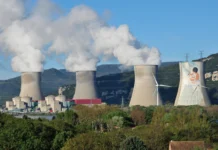BIOMASS seems to have hugely exceeded DECC’s expectations for the Renewable Heat Incentive (RHI), outperforming other technologies like heat pumps and solar thermal.
The non-domestic RHI was launched in 2011 and biomass has accounted for 95% of the heat generated under the scheme. There has been exponential growth in the sub-200kW band, for relatively small biomass boilers, but these boilers are now becoming increasingly difficult to sell, with the ongoing degressions in the RHI tariff, according to Frank Aaskov of the REA, speaking at May’s AllEnergy conference.
The domestic RHI was launched in 201 and so far biomass is the dominant heat technology being used under the scheme, accounting for half the heat generated, with heat pumps following in second place.
Biomass has been something of an over-performer, seemingly using up DECC’s budget for the RHI, and a number of degressions have been put in place, with more to follow. There have been four so far for the small-scale domestic biomass space. The REA seems to be lobbying DECC for a more measured approach. Nonsensical situations could arise: The 25% degression for small biomass systems, for example, will mean it has a smaller tariff than systems in the medium band. The REA is lobbying for a merger of the small and medium bands here, so they have a shared trigger.
Stability of tariffs should also be prioritised, suggested Aaskov, and DECC might consider supporting guarantees for projects with longer lead times, and ensuring no tariffs go below a certain level.







